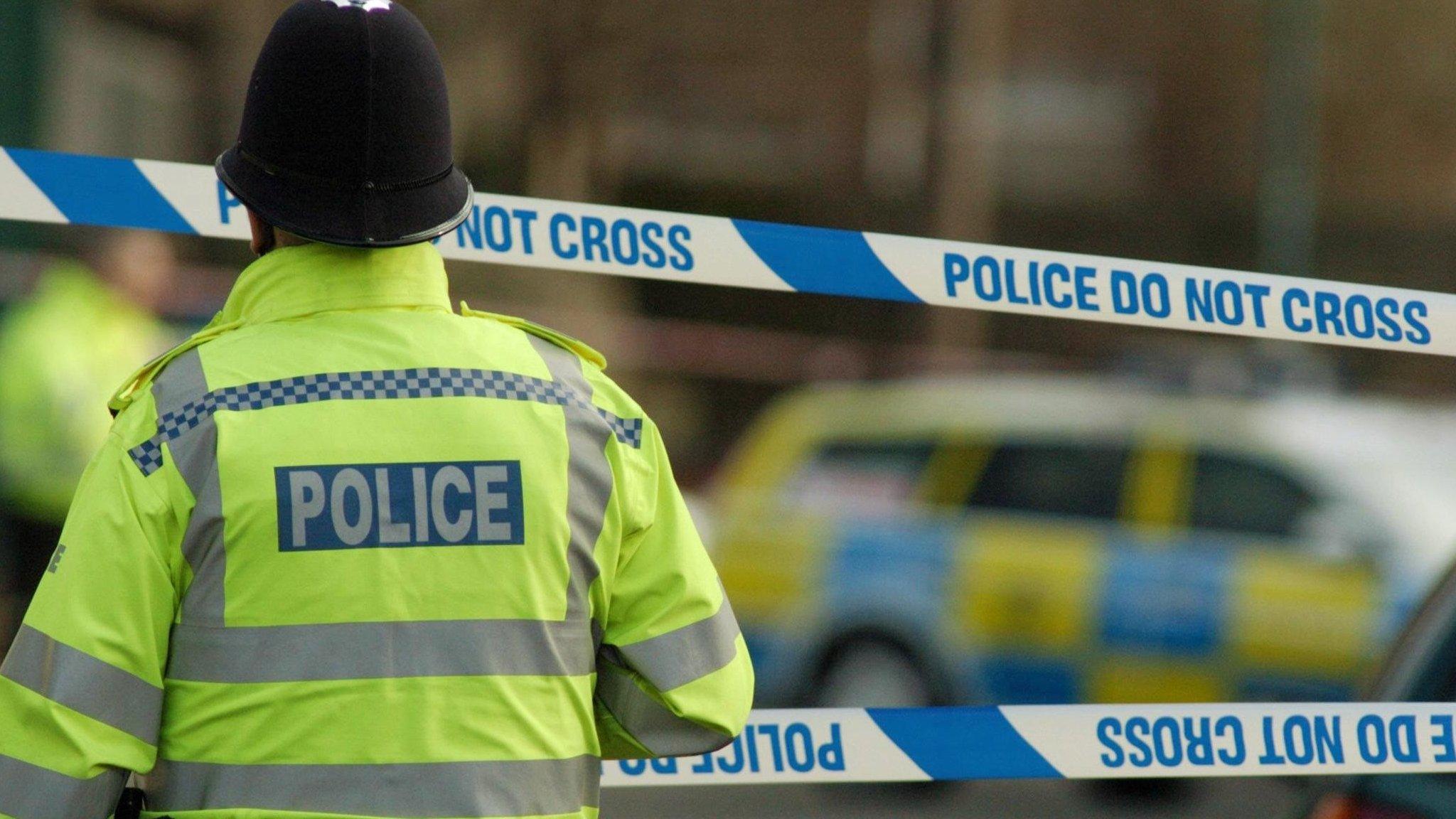Some police forces 'too inefficient to cope with more cuts'
- Published
- comments
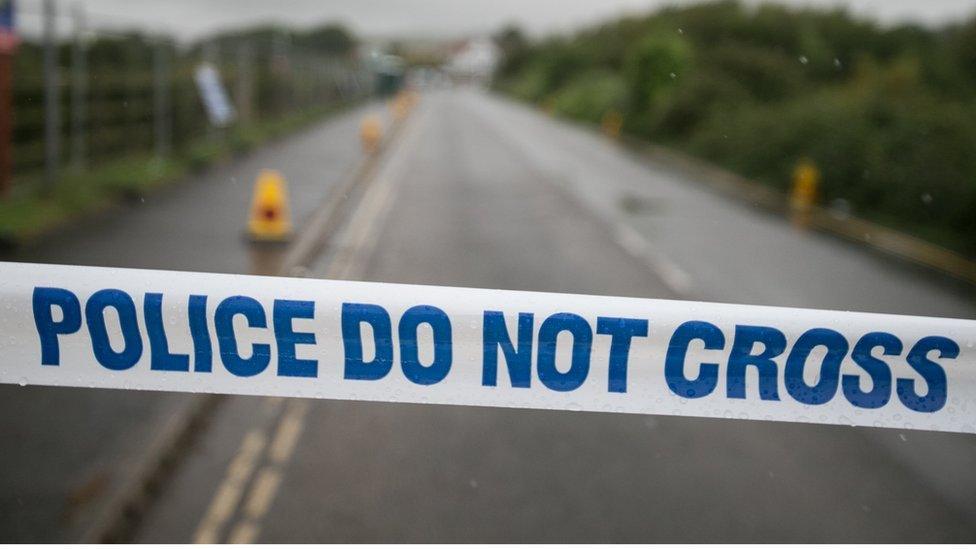
Some police forces in England and Wales may not be able to withstand further cuts because they are not efficient enough, the police watchdog has warned.
HM Inspectorate of Constabulary said even efficient forces could approach a state of "uncertain sustainability".
It is not clear what would happen if a force became unsustainable, but merging with another force is one option.
Home Secretary Theresa May said police forces must work together better and do more to prevent crimes.
Police forces have had to make substantial savings as part of public spending cuts over the past five years, and are bracing themselves for a further round.
'Ageing computers'
The HMIC report, external said forces were planning to reduce spending by 15% by 2018 and shed at least 12,000 posts - including those of 7,400 officers and 1,300 community support officers.
While some forces had achieved spending cuts during the last parliament without radical changes to the way they operated, that approach would be increasingly difficult to sustain, the report warned.
It found financial planning varied considerably from force to force, but most had a "weak understanding" of the future demand for police services.
It said police needed to keep pace with the growing use of technology by criminals, but their computer systems were "generally weak and ageing" and lagged behind those used by the public.
Forces generally recognised that they needed to improve their "understanding of the day-to-day demand from less visible or more complex crime, such as cyber-crime, child sexual exploitation or fraud", the report added.

Theresa May said police forces must "stop thinking simply in terms of numbers of officers"
The report also stressed the need for public reassurance as the profile of policing changed.
"Policing in five years' time is likely to look different to now and to 2010: smaller, less costly and perhaps less visible," it said.
"Maintaining visible neighbourhood policing, rather than becoming a mainly reactive service, is likely to be a challenge - and the public will need reassurance if policing becomes less visible."
With other agencies also facing financial pressures, HMIC said the "risk" is that demand on the police will increase and the least efficient forces will get close to the point "at which their financial sustainability and operational viability may be in jeopardy".
It is "conceptually possible" that even efficient forces could find themselves in an uncertain position, the report added.
Last year the chief constable of Lincolnshire Police said his force could become "unviable" in three years and could have to merge with neighbouring police.
'Uncharted waters'
Mike Cunningham, who led the inspection, said: "Police forces have been through change on an unprecedented scale since 2010.
"The next five years will be more challenging for forces as they strive to make further reductions in budgets and workforce, while dealing with increasingly complex crime. Policing is entering uncharted waters."
The findings echo recent warnings by senior officers, including the Metropolitan Police Commissioner Sir Bernard Hogan-Howe, who claimed it would be "a real challenge to keep people safe" if more cuts were made.
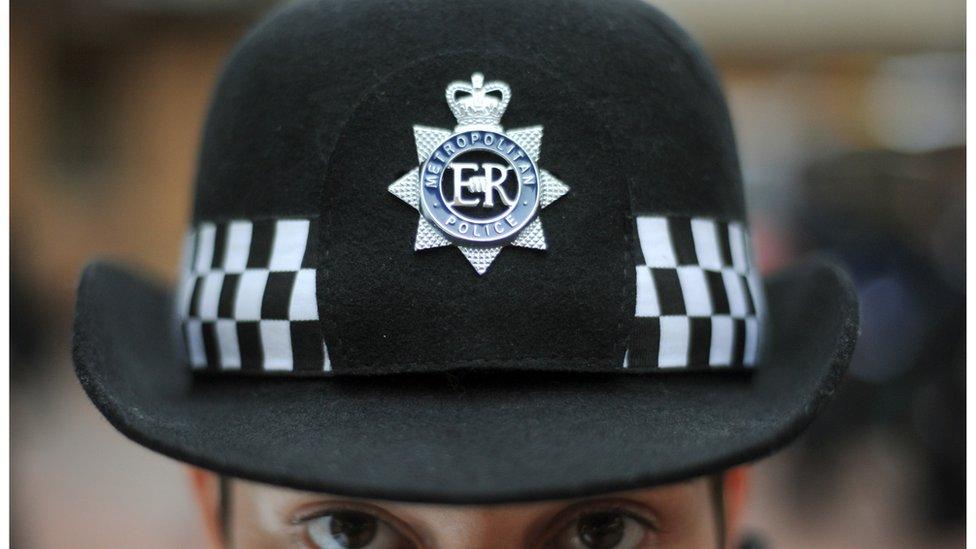
The chief of the Met is among those to voice concerns about further cuts
Chancellor George Osborne has asked ministers in non-protected departments - like the Home Office - to come up with reductions in their budgets of between 25% and 40% by 2019/20 ahead of next month's Comprehensive Spending Review, when the government's plans for the next four years will be set out.
Mrs May said police reform was "working", adding that crime had fallen by more than a quarter since 2010.
"However, if we want policing in this country to be the best it can be, then police forces must better understand their demand, develop more and deeper collaboration, and do more to prevent crime before it happens," she said.
"This report also shows, as HMIC has long said, that what matters is not how many officers you have but how they are deployed.
"Forces need to stop thinking simply in terms of numbers of officers and staff but rather the skills and capabilities needed to meet the future demands of policing."
- Published20 October 2015
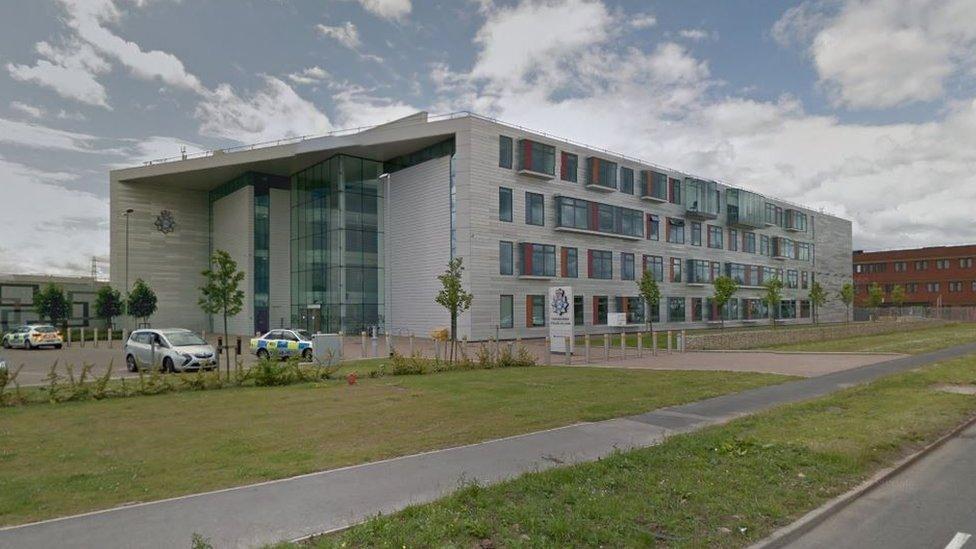
- Published15 October 2015
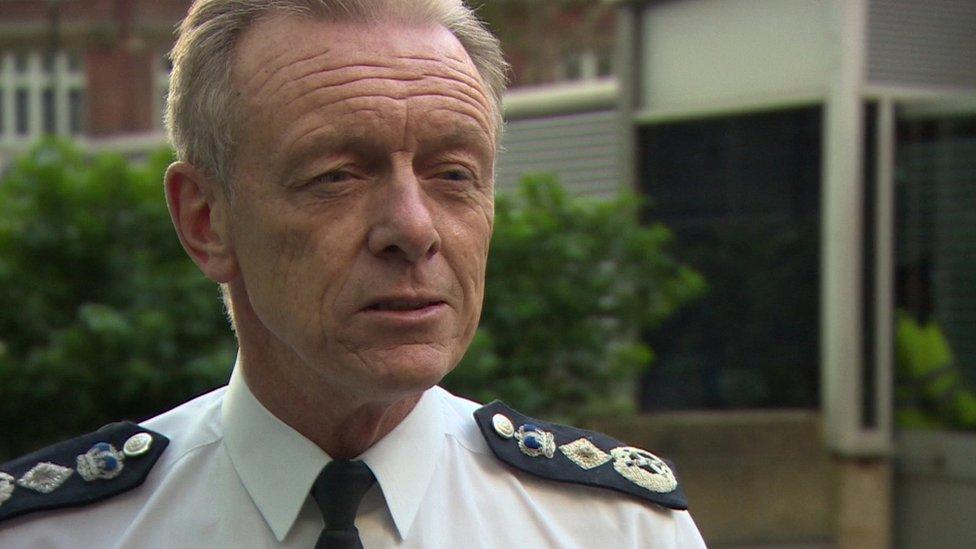
- Published18 September 2015
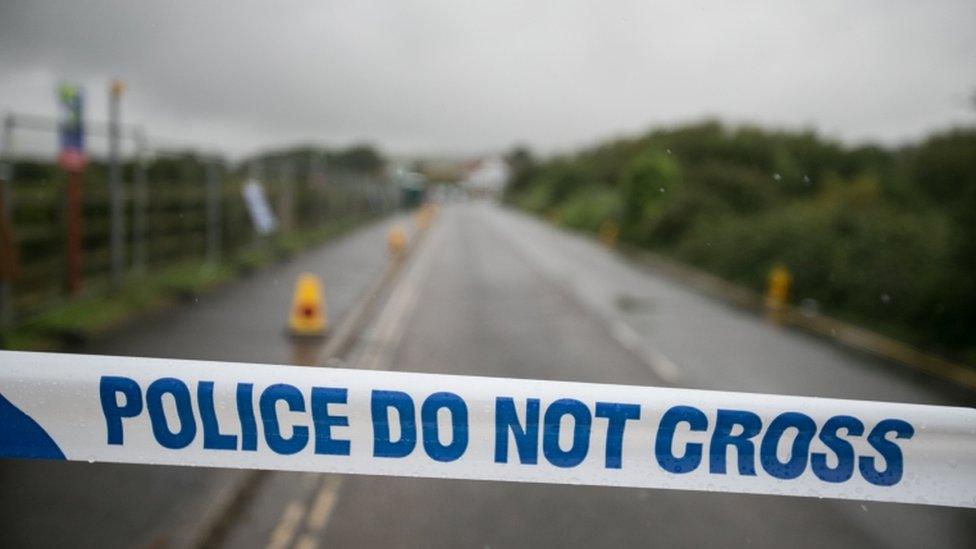
- Published4 June 2015
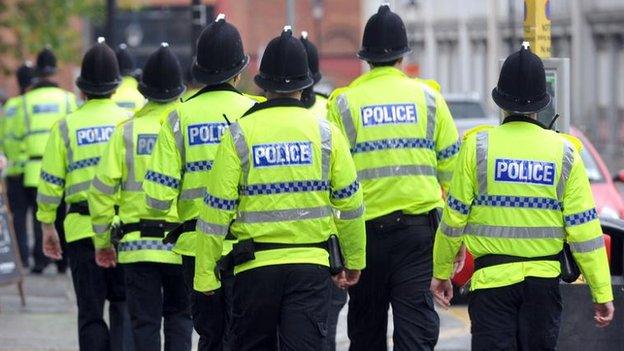
- Published4 January 2015
